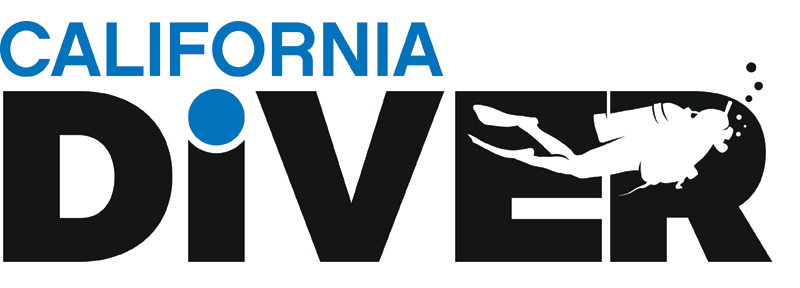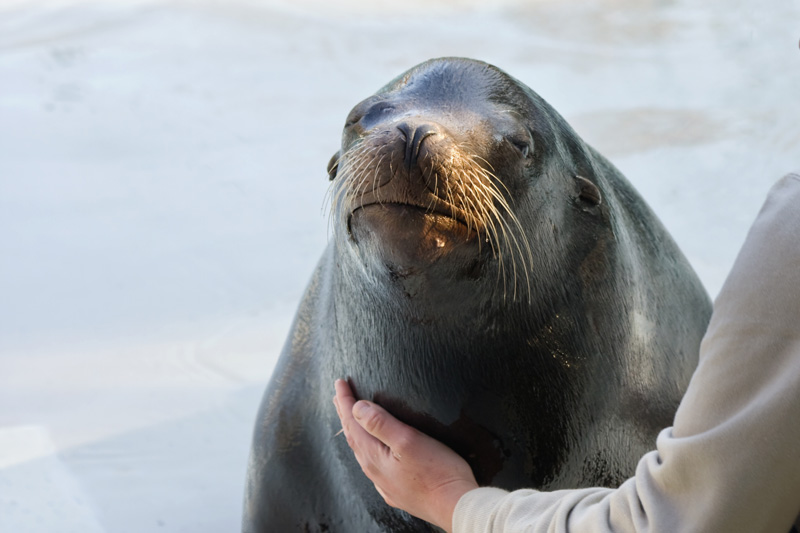When you’re out scuba diving, snorkeling, or walking along the beach, it might be tempting to feed the wildlife you see. Providing food to the animals we see can allow people to get a closer look at wildlife and it also gives a sense of satisfaction, knowing that you’ve helped an animal survive in a tough environment.
There are many reasons you should not feed marine mammals.
- It causes marine mammals to lose their natural wariness of humans or boats and become conditioned to receiving handouts and associate people with food.
- It changes their natural behaviors, including feeding and migration activities, and decreases their willingness to forage for food on their own. They may also begin to take bait/catch from fishing gear. These changed behaviors may be passed on to their young and other members of their social groups and increases their risk of injury from boats, entanglement in fishing gear, and intentional harm by people frustrated with the behavioral changes.
- Some of the items that are fed to marine mammals may be contaminated (old or spoiled) or not food at all. Feeding marine mammals inappropriate food, non-food items, or contaminated food jeopardizes their health.
Marine mammals sometimes become aggressive when seeking food, and are known to bite or injure people when teased or expecting food, like this:
There is also one more reason not to feed marine mammals and wildlife: The Marine Mammal Protection Act forbids the feeding of marine wildlife under any circumstances, and can result in penalties of up to one year in prison, $11,000 in civil penalties, and forfeiture of the vessel involved. Specifically, the Act bars harming, feeding, harassing, or otherwise interfering with marine mammals, including dolphins, seal lions and whales.
By definition, Harassment means any act of pursuit, torment, or annoyance that has the potential to injure a marine mammal or marine mammal stock in the wild (Level A harassment); or that has the potential to disturb a marine mammal or marine mammal stock in the wild by causing disruption of behavioral patterns, including, but not limited to, migration, breathing, nursing, breeding, feeding, or sheltering.
What looks and seems like harmless fun is not, wildlife officials say, and can result in law enforcement action.
In 2012, the owner and operator of a Monterey Bay whale watching boat was indicted for violating the Act. The four-count indictment accused the operation of feeding killer whales on two separate occasions. There was also video evidence of her feeding an endangered humpback whale during a whale-watching trip in 2005. While initially threatened with one year in prison and $100,000 fine for each offense, the operation ultimately pled guilty to one misdemeanor count of feeding orcas –resulting in a fine of $12,500 and 300 hours of community service.
In Georgia, a Georgia shrimper was feeding dolphins, using bycatch from a recent trip to entertain guests aboard his boat. A video posted to YouTube caught the eye of NOAA’s law enforcement office, and the incident was investigated for violating the Act as well.
When animals need help
If you see a marine mammal that really needs help due to sickness or injury, there are several things you can do to help.
The California Marine Mammal center has a 24-hour hotline where sick, injured, or stranded marine animals can be reported. In Mendocimo through San Mateo counties, (415) 289-7325. In Monterey and Santa Cruz counties, call (831) 633-6298, and in San Louis Obispo county the number is (805) 771-6298.
In other locations, NOAS Fisheries has a hotline which can be reached 24-hours a day. To make a report, call 1-866-767-6114.
If, on the other hand, you feel a violation needs to be reported, the NOAA Fisheries Enforcement Hotline can be called at 1-800-853-1964. Information may be left anonymously.

